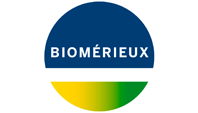bioMérieux is investing resources and implementing good practices to encourage waste reduction and the optimization of waste processing.
All of its initiatives follow clear guiding principles:
- Reduce,
- Re-use,
- Recycle and compost,
- Convert waste to energy,
- Dispose.
Waste reduction at source
- Marcy l’Etoile (France): optimization of the VIDAS® SPR production line to avoid unnecessary waste.
Improving waste management
- At the end of 2011, more than 60% of waste generated across all bioMérieux entities had been recycled, composted or incinerated with energy generation.
- Waste sorting schemes are in place at most sites.
- The Grenoble, La Balme and Saint-Vulbas sites in France are zero-landfill sites. The Durham site in North Carolina (USA) is pursuing the same objective.
- Composting of food waste at La Balme: food waste is composted and re-used on site rather than being sent to an external processing plant.
Raising employee awareness
bioMérieux conducts a number of initiatives to foster behavior change:
- The management is actively involved in the promotion of good practices:
- In Durham, North Carolina, recycling practices in the offices and compliance with waste segregation are audited on a regular basis. The management takes part in these audits and compliance with good waste sorting practices has reached about 80%.
- In France, specific initiatives are run during the national sustainable development week, such as raising awareness about the right way to dispose of WEEE (waste electrical and electronic equipment), in order to remind employees of the need to sort waste.
Community initiatives and partnerships
bioMérieux's sites and subsidiaries take part in various local community waste management initiatives, in partnership with NGOs, including:
- EcoPrint and "Close the Gap": within the context of the new harmonized printing system, EcoPrint, installed at bioMérieux, a partnership was formed with the NGO "Close the Gap" to collect the printers that are no longer required and make them available at low cost for educational and healthcare projects in emerging countries.
- bioMérieux Colombia: "Recicladores" program: the subsidiary gives away its recyclable materials to families whose livelihood depend on the reselling of those materials (the "recicladores").
- At the Craponne site (France), certain types of plastic are collected and given to an association in favor of the disabled.

